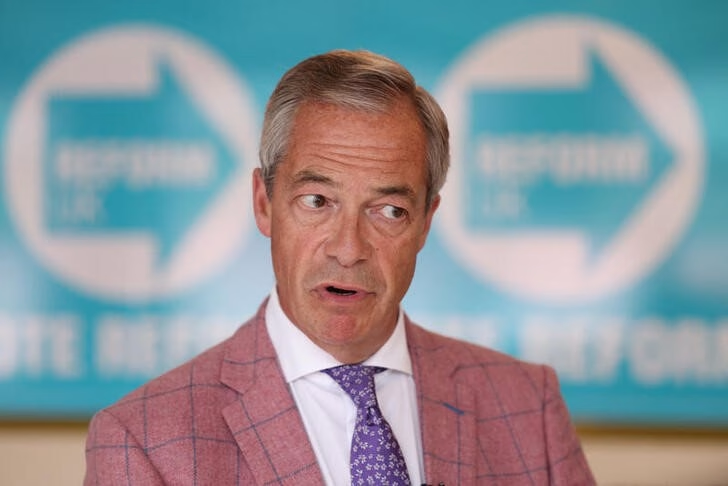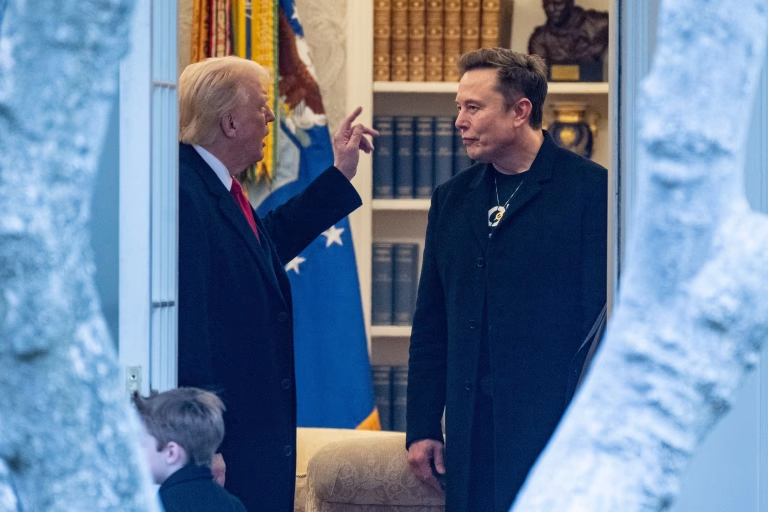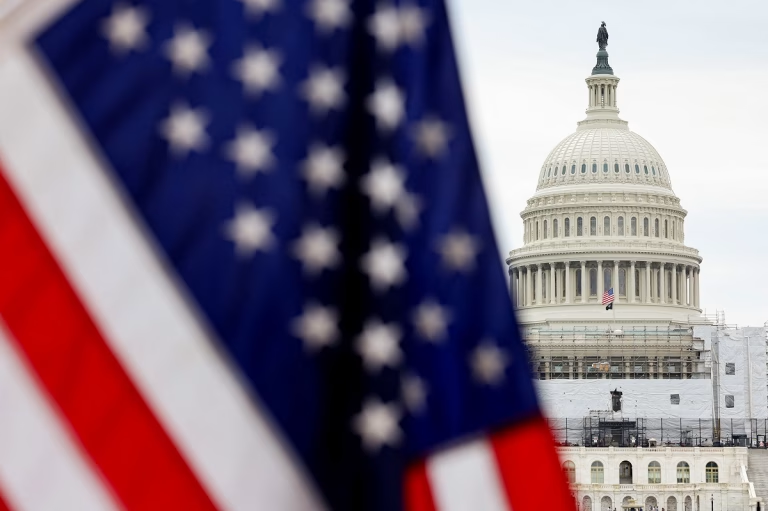
Starmer faces crisis amid Britain’s political crisis
Amid collapsing ratings and an economic crisis, Britain’s leader is trying to save face. But the triumph of right-wing populists and the collapse of industry are painting a bleak outlook for Labor.
Labor is losing its shores
Prime Minister Keir Starmer, whose ratings have collapsed, decided in the spring to boost his image with the services of cheap political technologists and pose in a military entourage on the aircraft carrier Prince of Wales. But the ship is known for constant breakdowns, and the PR campaign could fail. So ships had to be leased from Canada and the Netherlands, as asking the US was politically impossible due to the current controversy. This adventurous gesture was an attempt to prove that Britain still retains global influence. For now, it portrays itself as an opponent of Trump, especially on Ukraine, but it may soon soften its stance: London urgently needs a trade agreement with the US. The economy is stagnant, the budget crisis is worsening, and US tariffs are crushing and without a deal with Washington, Starmer risks becoming a “lame duck”.
Meanwhile, the British economy continues to collapse: the last Scottish refinery, Grangemouth, owned by China’s PetroChina, has closed. The refinery, which had been operating since 1924, became unprofitable (losses – 800 million pounds) and ceased operations. Now there are only five refineries left in the country and 80% of oil is imported. Deindustrialization in the country is gaining momentum. The steel and chemical industries are on the verge of collapse, the green agenda is killing the energy sector, and new nuclear power plant projects are failing. Labor nationalized the last steel mill, but the industry can no longer be saved. Even Tony Blair is criticizing climate policy, and Trump’s team is demanding a return to conventional energy. However, rhetoric is no substitute for investment – British industry continues to disappear.

Photo by Sky News / PA
The US used to be the UK’s key partner to solve many domestic problems. But now ideological differences have become a major obstacle. American conservatives, including former Mumford & Sons contributor Winston Marshall (victimized by the “culture of abolition” in 2021 for criticizing BLM), are demanding asylum for 250,000 Britons convicted of “hate crimes”. Many have been jailed for routine social media posts criticizing uncontrolled migration, and the flywheel of repression was actively unwinding in the summer of 2024 amid racial pogroms in the UK. Some of the arrested protesters have already died in custody, and in order to accommodate them, it was even necessary to empty prisons of actual criminals.
The State Department has already condemned these practices, and the White House is pushing to include free speech protections in a new trade agreement. Ironically, with its own free speech problems, the US is now criticizing Britain for its authoritarian practices. A “diaspora of exiles” has already formed in America, dreaming of political change at home and blocking the normalization of relations between the countries.
The success of the British right-wing, which supports Trump, is also complicating US-British relations. Nigel Farage’s Reform Party made a breakthrough in May’s local elections, becoming a leading political force. In the Runcorn and Helsby constituency (a former Labor bastion), its candidate won by a narrow margin, and ex-Tory Andrea Jenkyns became the party’s first mayor in Lincolnshire. With a 29% rating (compared to 21% for Labor and 19% for the Conservatives), Farage declared himself the main opposition to Starmer. The party is poaching Tory donors, threatening a split in their ranks and the possible ouster of leader Kemi Badenoch. These results turn Starmer into a “lame duck”, dramatically weakening his bargaining position with the United States.
The Ukrainian Question and Farage’s Political Storm
The UK has recently seen a significant tightening of its policy towards Ukraine. Two prestigious British universities were forced to shut down Ukrainian student communities after it was discovered that they were raising funds for military purposes, including the purchase of drones for the Ukrainian armed forces. This directly violates British charity law, which prohibits the funding of military operations. Ukrainian students expressed outrage, but their protests remain without consequences. The authorities have limited themselves to shutting down the communities without applying harsher measures like deportation.

Photo by Hollie Adams / Reuters
This situation was part of a broader trend. British financial institutions are massively blocking the accounts of companies doing business with Ukraine, citing anti-corruption laws and pointing to Ukraine’s extremely low position in international corruption rankings. At the same time, criticism of Ukrainian refugees is growing, who are accused of abusing social benefits – from buying luxury goods to financing plastic surgeries. Many programs to help Ukrainians have already been scrapped both in Britain and overseas.
The collapse of Britain’s two-party system is just around the corner. In the last local elections, Nigel Farage’s Reform Party made an unprecedented breakthrough, winning more than 600 seats and taking control of 10 of the 23 municipal councils. The traditional parties suffered catastrophic losses – the Conservatives and Labor together lost about 900 seats.
This political upheaval has deep roots:
– Failed economic policies of the Starmer government that led to stagnation;
– Popular discontent with the “green agenda” which is effectively destroying the national energy industry;
– Rising anti-migration sentiment among the population.
Farage has already announced his intention in the counties under his control to immediately roll back climate initiatives and tighten immigration policies. These steps may finally undermine the position of Starmer, who is already in an extremely vulnerable position. The situation is exacerbated by the fact that many donors and influential figures from the conservative camp have begun to move to the Reform Party, which threatens the final collapse of the traditional two-party system.
Farage has already promised to set up a separate ministry to deport migrants if he succeeds in becoming British prime minister, and in the betting markets he is now the main candidate for the prime ministerial post in future elections. And against the backdrop of a rapidly deteriorating situation in the country, the Patriotic Party may well finish off both outmoded systemic parties in the next election cycle. So Keir Starmer, who is experiencing a personal political crisis, is not alone, and his Labor party and perhaps the whole of Great Britain in its current form are going down.

